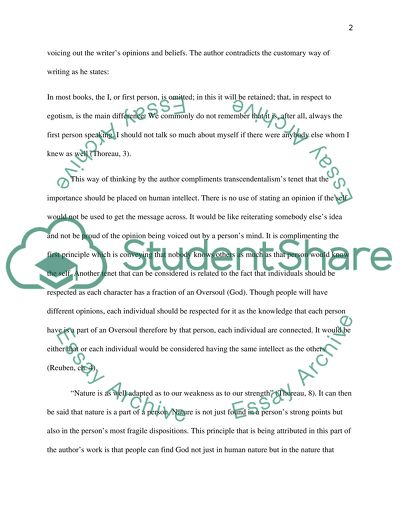Cite this document
(“Transcendentalism in Walden by Henry David Thoreau Research Paper”, n.d.)
Retrieved from https://studentshare.org/philosophy/1586937-transcendentalism-in-walden-by-henry-david-thoreau
Retrieved from https://studentshare.org/philosophy/1586937-transcendentalism-in-walden-by-henry-david-thoreau
(Transcendentalism in Walden by Henry David Thoreau Research Paper)
https://studentshare.org/philosophy/1586937-transcendentalism-in-walden-by-henry-david-thoreau.
https://studentshare.org/philosophy/1586937-transcendentalism-in-walden-by-henry-david-thoreau.
“Transcendentalism in Walden by Henry David Thoreau Research Paper”, n.d. https://studentshare.org/philosophy/1586937-transcendentalism-in-walden-by-henry-david-thoreau.


